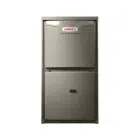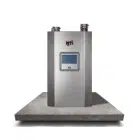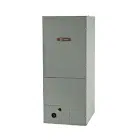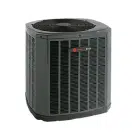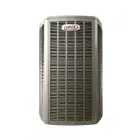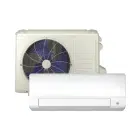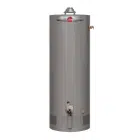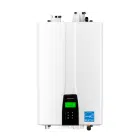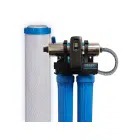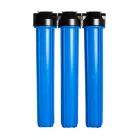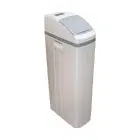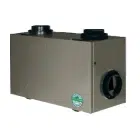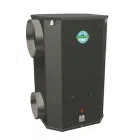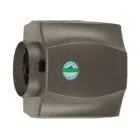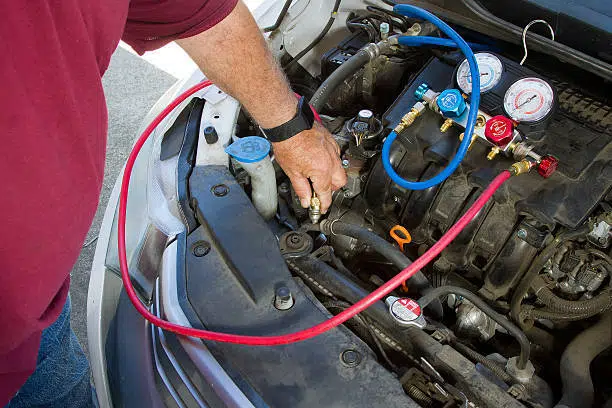
Your AC uses R22 refrigerant, which has been banned since January 1, 2020
Refrigerant R-12, commonly found in older air conditioners, is one of the main causes of the ozone depletion and the ozone hole. No R-22 supplies are allowed to be brought into Canada since January 1, 2020.
If your AC uses R-22, you can convert it to use non-ozone depleting R-410A refrigerant. But you’ll have to safely dispose of old components, and will need a new line set and evaporator coil. You’ll end up with a hybrid system that won’t be energy-efficient. Unlikely that this is worth your time and money.
Or you can replace your unit. A newer model that’s built to use R-410A will last longer and consume far less energy. And the Government of Canada offers rebates for energy efficiency upgrades.
AC is more than ten years old
Older air conditioners typically last about 10-12 years in the best cases, while the lifespan of modern ACs is between 15-20 years.
If you haven’t properly maintained the unit and skipped yearly tune-ups, your AC may last shorter than it was meant to be. Also, over time, mechanical parts can become unavailable or obsolete, and you won’t be able to get a replacement.
High utility bills
If your utility bills are increasing but you aren’t changing anything about how you use your AC, it may not be running efficiently. It might be influenced by such factors as:
- Failing parts
Failure of the motors, capacitors, compressors, and all other mechanical parts can cause the system to work inefficiently and consume more energy.
- Duct leaks
You might wonder, what is forced air central air? “Forced air” refers to any heating & cooling system that pushes air through ducts, and “central air” refers to an air conditioning capacity as part of a forced air system. The conditioned air that flows out of the system due to duct leaks is a waste of money.
AC emits odors
Strange smells coming from your AC may be a sign that something is seriously wrong. The same goes if you feel a burning odor from the system. The problem could be too major to repair, and you’ll have to replace the unit.
To detect such problems before it becomes an emergency, it’s advisable to have a maintenance service at least twice a year. And a technician can help you to choose between repair and replacement.
Frequent repairs (aka money go to waste)
Has your repairman been your most frequent visitor? Repairs can be incredibly costly. You have to pay for replacement parts, as well as for repair services.
If your AC keeps breaking down despite regular maintenance, and you’re facing expensive repairs, it could be more economical to purchase a new unit rather than sinking an awful lot of money into this.

To replace or not to replace, that’s the question…
Please let us know if you notice one or more of these signs. Our experts can give you an honest recommendation on whether your AC should be replaced. And if yes, assist you in selecting the best air central conditioner brand and help to receive a rebate.
Share

